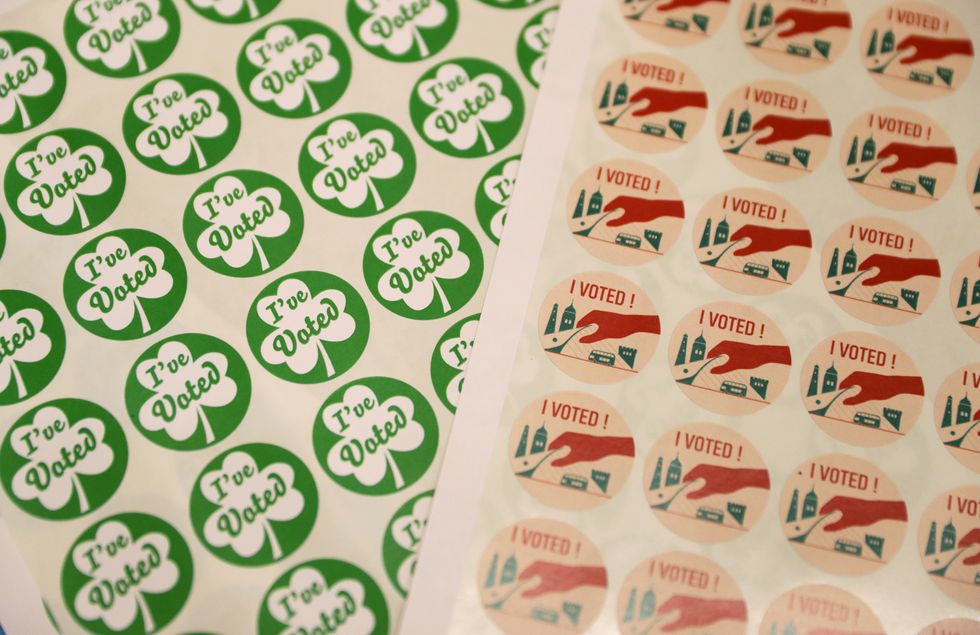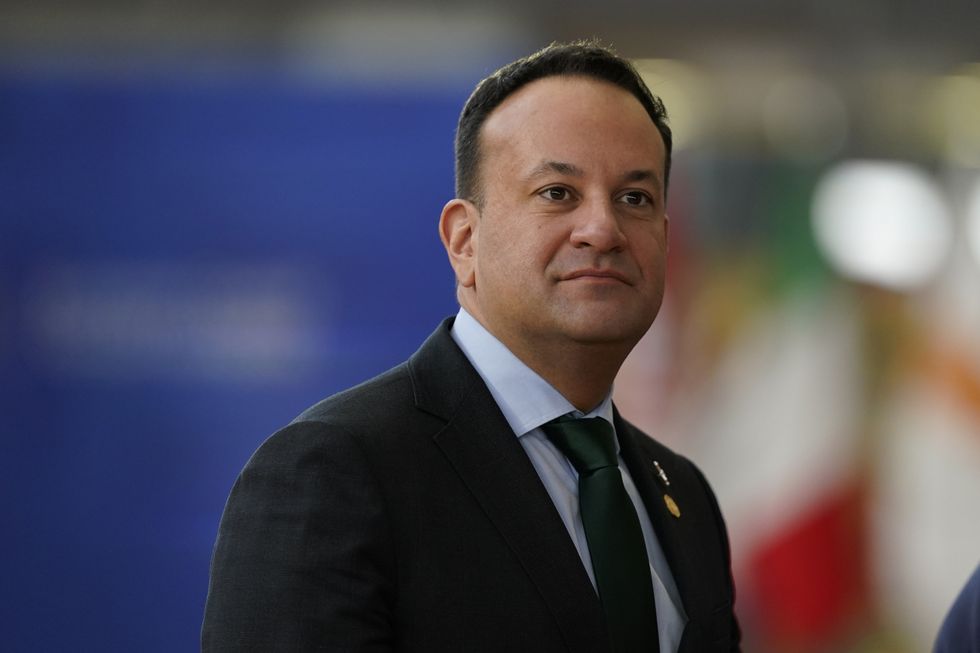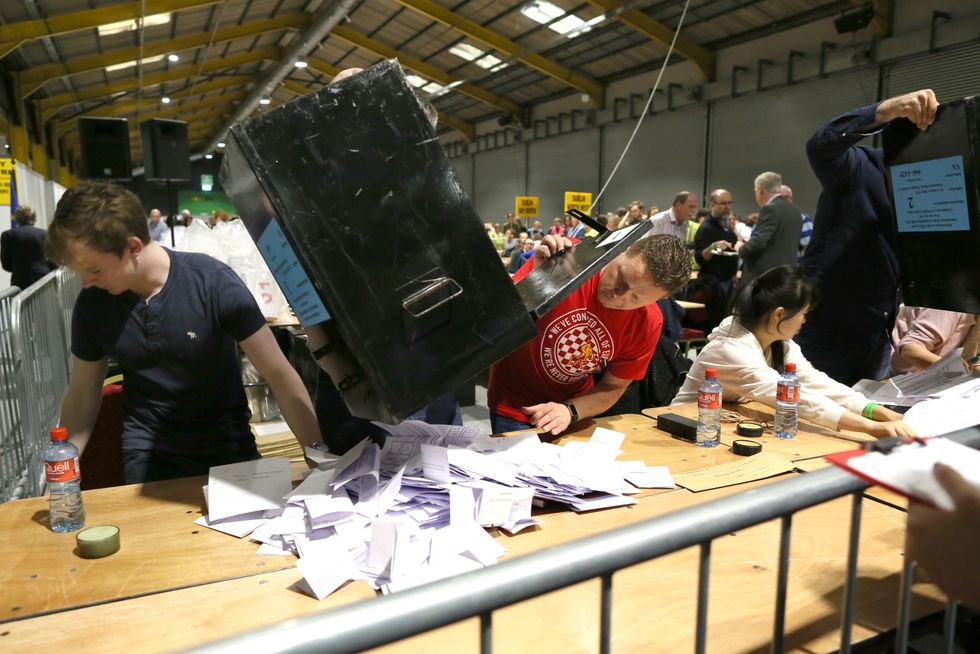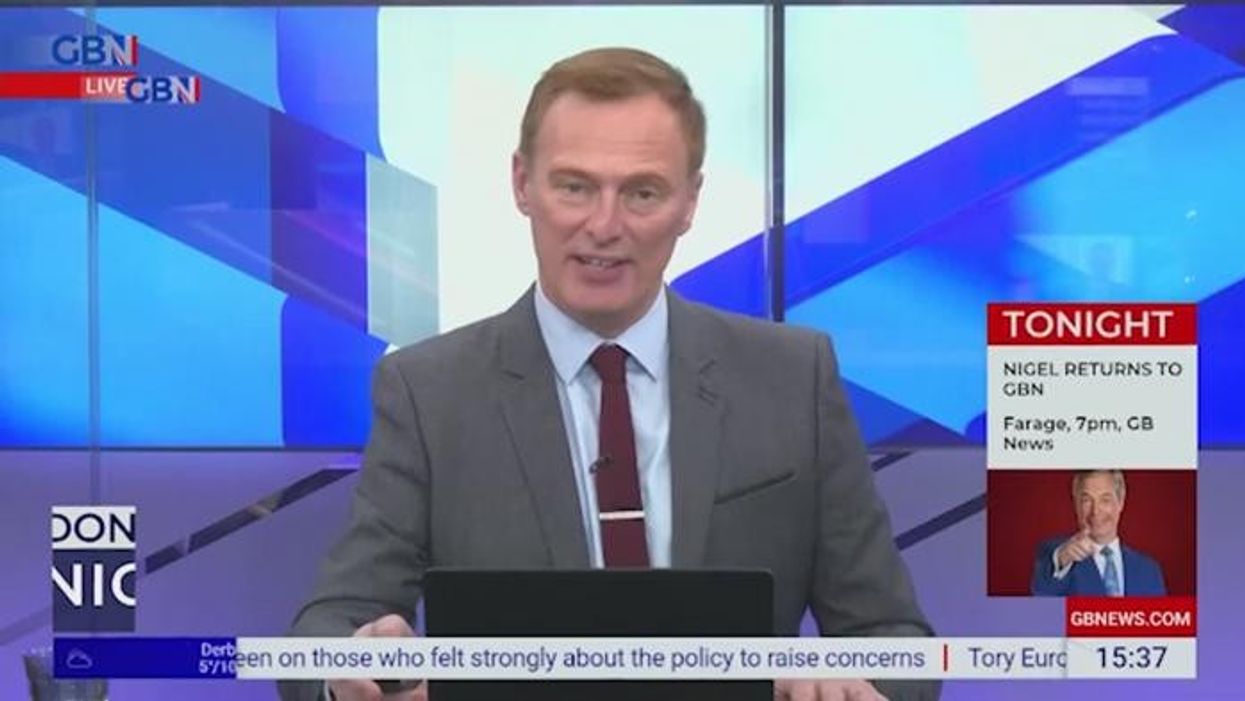Voters across the Republic of Ireland will go to the polls on Friday to decide whether Dublin should enact controversial changes to its constitution
Don't Miss
Most Read
Trending on GB News
Ireland has been tipped to ditch the words “woman” and “mother” from its constitution in just days as voters look set to endorse some controversial changes.
Polls will open across the Emerald Isle on Friday to decide whether Dublin should widen its constitution’s concept of family and the role of women in society.
The Irish Electoral Commission launched an independent information campaign for the ballots on March 8.
The proposals, if supported by a majority of Irish voters, would remove the constitution’s reference to women’s “duties in the home”.

The Irish Electoral Commission launched an independent information campaign for the ballots on March 8
GETTY
Changes have been dubbed the Family Amendment and separately the Care Amendment.
The Family Amendment will ask people to expand the definition of a family to include those in “durable relationships”.
The Care Amendment looks to remove the so-called “a woman’s place in the home clause” from the constitution.
Supporters of the proposed amendment claim the changes will remove the language about women’s duties in the home and the potential “neglect” of these responsibilities.
The amended clause would instead say: “The State recognises that the provision of care, by members of a family to one another by reason of the bonds that exist among them, gives to Society a support without which the common good cannot be achieved, and shall strive to support such provision.”
Irish Taoiseach Leo Varadkar is calling for Irish voters to support both amendments.
He said: “In terms of momentum for a Yes vote, while I'm certainly not taking the result of the referendum for granted, I do think it's in the balance.
LATEST DEVELOPMENTS:
Prime Minister of Ireland Leo Varadkar arrives to attend the EU Summit
GETTY
“A lot of people are really only getting around to thinking about how they're voting now.”
The Taoiseach added: “The relationship that exists between a child and their mother or father when they’re born, that’s the one-parent family. It’s committed, it’s caring, it’s long-lasting.”
Varadkar also claimed voting against both amendments would only “reaffirm” sexist language and fail to recognise family care in the Irish Constitution.
However, critics lament the amendments as tokenistic and even an attack on womanhood.
Irish Senator Ronan Mullen described the wording as “constitutional novelty”.
Judge Marie Baker also reportedly explained a “durable relationship” could mean a couple who have received a single Christmas card or wedding invitation.

Voters will go to the polls yet again on Friday
GETTY
Opinion polls suggest that constitutionally recognising non-martial families and care in the home will pass on Friday.
However, the surveys also showed better-informed voters were more likely to vote against the proposed changes.
In the referendum on changing the constitutional provisions relating to the definition of the family, over half of all voters (52 per cent) say they will vote in favour, with just 15 per cent against.
Around one-in-four voters said they do not know how they will vote and a further five per cent look set to shun the opportunity to express their feelings on the matter.
Yes opened up an even larger lead in the value of care poll - totalling 59 per cent.
Just 12 per cent intend to vote against the proposal, with 23 per cent still undecided and five per cent expected to steer clear of polling stations.









